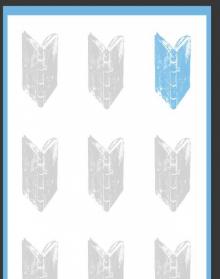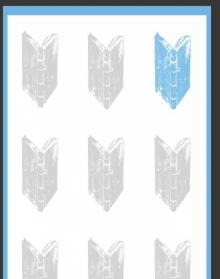- Home
- Storm Jameson
The Moment of Truth Page 2
The Moment of Truth Read online
Page 2
“Well, this time, I hope you’ve made it strong,” said Kent.
Smith’s voice was as low and gentle as his dialect was tart.
“It’s near as strong as the tea we had brewing all day when I was a lad. Black as pitch.”
Marriot sat down to the table. The others wandered about, plate or cup in hand, as though it were a buffet. Stumbling over a suitcase lying on the floor open, Kent dropped his plate, swore, and pushed the broken pieces out of sight with his foot.
Smith asked,
“Any fresh news, sir?”
“No.”
There was a pause, then Smith said quietly,
“I’ve been through this before. From, as you might say, the other side.”
Kent looked at him with a smile.
“What the devil are you talking about?”
“I was in Norway, y’see, in 1940, when they had their invasion. It was a rare mess, we pulled out in a hurry, back home. They were coming away themselves, b’ plane and in boats—their King and that lot. People like us, too—hundreds of them. It never struck me till now—they weren’t coming home; of course they weren’t, they were getting out. Same as us now. On account of the country couldn’t be held.”
“Like us,” Marriot said lightly.
Smith ignored this. The effort he was making, half vexed with himself, since what good does it do you turning up back thoughts, to see clearly a country he thought he had forgotten, and faces, among them his own, jumbled under dust and rubbish in an attic, took all his energy. Otherwise he would have shut up—thinking he was being laughed at.
“Things they said to us—and their looks. I was a stranger there; it was England I was going to—I didn’t see, as you might say, into th’ room. But by jiminy, I know now what they felt. This country, our captain says, meaning Norway, can’t be held. Well, what of it, I thought, we can go home again, can’t we? Worse things happen. Turn our backs. … It never struck me—the country can’t be held meant different to them. It meant—b’ God, it meant like this. Bitter—hell.”
Kent frowned, caught by a grief he did not recognise, and half bored.
“They went back, didn’t they?” he said.
“Some of them.”
“Right,” Kent said, waving his arm, “we may be lucky.”
Smith narrowed his eyes. Young know-nought, he thought, with malice but not unkindly. He liked the pilots, had been anxious about them often, liked Kent rather more than most. And he was still adrift, trying painfully to settle by thinking about it a problem he felt ought never to have been landed on him.
“Have you ever been in Leeds, sir?” he asked Kent.
“No,” Kent said. “Yes, once.”
“Not in my part of it, though.” He saw a rabble of streets that were one and the same street, houses reared back to back, down, up, down, up, sooty walls, smoke, doorsteps ritually whitened with the block of sandstone, lace curtains. A couple of streets from his own door, along and down, an easy eight minutes in the weak sunlight, twenty on hands and knees in the icy frosts, and you were at the factory. “If they’re there still,” he said reluctantly, “what’s going on in them streets? Nothing, eh? No noise, even the Halliday woman, brassy voice she has, keeping quiet. Women as used to live half th’ day on their doorsteps. Every door shut, and the women with nothing to do but wait. I can just see ’em. Waiting.”
Glancing briefly at Cordelia, Kent saw that she had been disturbed by this, he called it, muttering. He was vexed with Smith.
“Why not use your imagination on us?”
The young man’s voice, curt and sullen, fetched Smith back sharply into the room; he remembered who he was and where he was, and fell back hurriedly, glad of it, into his easy-tempered reliable mistrustful self.
“You and Miss Brown, sir, and Sergeant Marriot,” he said, “will be all serene over there. Plenty others like you.”
Is he worrying? thought Kent. Why?
“So will you. Every mechanic wanted. That’s what they said.”
Except for the flicker of irony in the eyes, small, living an animal life of their own in their sunken pits, his face was shut like a fist.
“That’s right, sir.”
Marriot at this moment dropped the knife he was using with his sound hand. He frowned, leaning back in his chair. Without hurrying himself—they went through this game at every meal—Kent walked round the table to him and said casually,
“Here. Let me.”
He dug out more ham from a tin and began cutting it on Marriot’s plate; he spread four or five rusks thickly with butter, salted them, and poured coffee.
“Master David finish up all his good food,” he mocked.
Smith watched them rather grimly. Born between two wars, childer, more likely babbies, he thought, in 1939, what have they had? He felt gentle towards them, and bitter. The three of them—“Reach me over that paper, Browny,” Marriot said—were together: as it were, against him. But what excluded him was not a difference of class—every which as good as the next man, and don’t you forget it—not of authority, even. Such ambiguous authority as Kent had. It was their ages. They were lighter and he slower and heavier by twenty or more years’ weight of trivial memories: the bedroom in Nidder Street, its ropes of flowers faded on the only wall where an acid sun caught them, the pitch-pined cupboard, the framed print of Proserpine leaving hell—so familiar that he had never actually seen it and now recalled only a piercing blue—his wife lying on her side in bed, under the heavy quilt—Turn yourself round now, old girl, he said; he stretched his arm over her thigh, and slapped it gently; the people jostling him in trams and shops, the women’s hair screwed into steel curling-pins, clumsy male bodies, as absent to him, yet easy to his hand, aching muscles, shrewd jog-trot thoughts, as his own; the kids yelling at play round the lamp-posts, flying through the circle of light, and away; voices of women; days guttering down to winter. Groping in his mind again towards that one casual experience of defeat, exile, loneliness, he thought it had happened many times before. Many had gone through it: what they had endured, he could. He had a cold feeling of being companioned: it helped him.
Marriot turned over with his fork the paper spread open beside his plate. In a jeering voice he said,
“Yes, well time they were written off. Call me early, mother dear, for I’m to be Queen o’ the May, mother, I’m to be Queen o’ the May.”
The telephone rang.
As Kent listened, the change in his face, to a haggard severity and coldness, shocked Cordelia into saying,
“What is it?”
He looked at her with annoyance and waved his hand impatiently for them to be quiet. They were quiet, and watched him. Reaching for his pad, he began to write down a string of names, repeating them aloud.
“Yes. … Yes, sir. … Major-General Thorburn. T for Thomas, H for Harry, yes. … Brigadier Clarke, Major Heron, Professor—what? B-r-e-u-n-e-r—oh, Breuner …”
“Is he called Emil?” asked Marriot.
Kent glared at him.
“… Colonel Lackland. … Five. Yes, sir. … No. … Why send them here, sir? … Oh, I see. … No, I don’t know whether it’s clear. … No, sir. I thought they had enough on their plate without dishing out information to us. We expected to be seeing for ourselves. … Yes, sir. … Thanks. … No. … Yes.… I see.”
A pause. He appeared to be still listening, but in some way the others knew that he was leaning over a silence, the man who had been talking to him had put his receiver down, gone. Kent replaced his. He looked at them without a flicker of recognition or interest for a moment. Cordelia said anxiously,
“Well?”
Kent spoke with the reflexive lightness a shock brings into use.
“Famous last words. D.8 closing down now, D.8 closing down, no more from me, no more from me.”
“Oh, is he?” Marriot said: “but what’s it about?”
“He’s sent us a truck-load of V.I.P.’s,” Kent answered coldly, “for Jock to t
ake back with him. Five of them.”
No one answered him for a moment. Then Cordelia said,
“Five?”
“I said five. Full house and all that.”
Smith watched them, and thought slyly: They’ll make out all right. He remembered his shipwreck during the last war, the fear and bitter cold afterwards in the boat, and Thorngill, when one of them, washed overboard by a wave, was washed in again by the next, saying: Can’t you make up your mind?
“We’ve had it,” Marriot said gently.
“Oh, we’ve had it all right,” Kent said. He was suddenly amused by the way it had happened, a wave rushing over sand-castle, bucket, shoes. “No more from bloody him,” he sang.
“Why,” asked Marriot, “send them here?”
“Some goddamn mess-up. Five odds and sods who’ve been knocking round from place to place for a week.”
He was putting off the moment when he would look at Cordelia. Not that he was afraid—and knew what to say—but when their looks met it would be final, a confession of disaster, as good as saying: It’s all up. Stupid with anger and grief, he thought: One more minute, give her another minute to hope.
Smith said cheerfully.
“Well, sir, that’s settled us.”
To his own surprise, Kent burst into a loud laugh.
“There are times, Smith, when I believe you think.”
Now he could look at her, a long steady look, letting her know that they were hopelessly done for, that he loved her and would cut a hand off to save her, but it was no use. She looked back at him with as much steadiness.
“He knows Jock won’t be able to make another trip?”
“Oh, he knows all right,” Kent said. My love, he thought, my heart’s girl, my child.
“Very important persons, Browny,” said Marriot, “are very important. Don’t get ideas into your head about yourself.”
“Closing down now,” Kent said. “No more from me.”
Marriot smiled, with a touch of malice.
“Another candidate for the last plane.”
“Probably.”
“Listen,” Smith said.
The others heard nothing, but he shook his head, scratched it, and clamped out. Marriot went as far as the doorway and stood there, shielding his eyes with his hand. The sun was low enough now to send a molten tide leaping across the airfield, reflecting the cries of gulls. The girl had run to the window. Kent followed her: without looking at her—he did not know what sort of wild hope she might be nursing, and would rather not know—he took hold of her hand as they stood there, listening. After a moment, they heard the noise of a light truck on the road at the back. He tightened his grip for an instant, then went out on to the airfield.
Marriot came back into the room. In a quick rough way, Cordelia was piling their plates and cups on the trays. He watched her for a minute, sorry for her, and feeling briefly guilty because this mattered much to her and so little to him. He had no feeling that she ought to be looked after, as a young woman, but he was fond of her: he noticed that her hands were unsteady.
“Poor old Browny.”
She looked at him with unexpected fierceness.
“Why me?”
“Oh, I don’t know. You look as though you’d dropped your Saturday sixpence down a drain. I’ll tell you what, old Browny—” He stopped. “Here they come.”
They straggled in, filling the doorway, breaking up as they came forward into fragments of bodies: a face dislocated by fatigue, another so darkly tanned that it was startling and vivid, a black eye-patch. With a light shock, Cordelia saw that among them was a youngish woman—exhausted, and in spite of it elegant: and a child, who might be five years old; he had dark sorrowful eyes in a white face; he lay back as if he were broken in the arms of a young soldier, very young, a plain countryfied lad, holding him with awkward tenderness. Cordelia hurried towards them. The woman was carrying a suitcase: she handed it to Cordelia, without speaking, and let herself fall into the chair the girl dragged forward.
One of the older men, the general, spoke to Kent, growled, rather, like a good-tempered bear; he had an enormous head, his uniform looked as though he had rolled in it through a hedge: taking his cap off, he rubbed his head until it bristled with grey knots and wisps.
“I suppose this is the place?”
“We were expecting you, sir,” Kent said. “That is, I’ve just been told to expect five people.”
There were six men, one of them a civilian with a brown piratical face and, as well, the woman and the little boy.
“Oh, you were? Well? I don’t see any aeroplane.”
“There’ll be one any minute, sir. To-day or tomorrow. Possibly this evening.”
The general’s massive face twitched.
“Is that your idea of any minute? What nonsense. We were told it was here.”
Unmoved, Kent said,
“What is called an intelligent forecast, sir. Won’t you sit down?”
The general flung himself untidily into an armchair, growling,
“Sit down, Clarke, sit down, man.”
Moving as though he were deformed in some way, the brigadier took a step nearer the chair Kent pushed towards him, groaned, and remained standing. He was short, plump, rosy-cheeked—the face of an intelligent rogue, thought Kent: in the same moment, he noticed the old man’s treble row of ribbons, among them the D.S.O. In a voice between a crow and a chuckle, Clarke said to him,
“I’m ruined if I sit down—if I have to get up again. Where is this aeroplane of yours, boy? Is it worth my while to bend meself? Hey?”
“I should if I were you, sir,” said Kent. “It may be twenty-four hours.”
Groaning, hand over his reins,
“Thank your stars you’re not me.”
“Sit down, Will, sit down, can’t you?” the general said, genial and impatient.
Obviously in pain—and making the most of it—the brigadier lowered himself heavily into the chair. “Oh, my God,” he muttered, “my God, my God.”
Glancing at the other officers—both of them men in the middle thirties—Kent thought: What am I to do with all these old birds if Jock doesn’t turn up? And which of them do the woman and her child belong to? … All of them except one of the young officers were pretty dishevelled; he was on the point of asking the general if he would like to wash before he had supper when this officer—the colonel—threw him out of his stride by asking sharply,
“You in charge here?”
Annoyed, Kent stared at him for a moment before he answered. A lean broad-shouldered man below middle height, trim, astonishingly trim, almost spruce, with a pale face and one coldly blue eye—a black patch hid the other—not a pleasant or an attractive face, but, Kent thought unwillingly, to be trusted.
“I am.”
“The place seems deserted.”
Is he implying that otherwise I wouldn’t be in charge? Kent thought. He frowned—and tried to cover up his annoyance by saying amiably,
“You’re Colonel Lackland, sir, aren’t you? If you’d come here ten days ago, you’d have found it littered with people. There are only four of us left now.”
Lackland lifted almost colourless eyebrows.
“Where are the rest?”
“In America or Canada, most of them. Except a few who nipped off home when no one was looking——”
The general, head on his chest, had slumped in his chair like an old—and dirty—sack. Interrupting,
“Very small airfield, isn’t it?”
“Very, sir.”
“What’s it doing here?”
“It was put down, sir, for the use of Garra House—if you know it. I don’t suppose you do. A research place of some sort—very hush-hush. Gone now, though. We’ve been evacuating the staff.”
As he spoke, Kent kept an interested eye on the movements of the second of the younger officers—Major Heron, he would be. A minute ago he had strolled—like an actor who has been told: Stroll, don’t walk�
�to the door: he stood there, hand on his hip, head flung back, and examined the airfield through half-closed eyes. Turning, he caught the young man’s eye on him, and sauntered back into the middle of the room: he had a remarkable face, Kent now saw, crumpled as though he slept on it, with delicate features and thick fair hair, of an unmilitary length. He was tall.
In a friendly voice, soft, and at the same time playful and supercilious, he asked Kent,
“Is this place safe?”
Kent looked at him with the surprise he felt.
“How do you mean?” He had no reason to be careful with these intruders, and went on maliciously, “We used to have a few army types ready to defend us. I’m afraid we shipped them forward with the rest.”
Heron smiled with one side of his mouth.
“I was thinking about bombs. An airfield, surely … and if we have to hang about here for days …”
Windy, thought Kent. Understanding, and slightly contemptuous, he said,
“I don’t think they’ll notice us much. I’m afraid there’s nowhere else I can put you. There was only Garra House itself—five miles away—it’s in rather a mess now. Sorry, and all that.”
Heron did not raise his voice. His nerves betrayed themselves by a twitching muscle in his cheek, below the eye.
“You were left here, I imagine, because no one supposed you would have anything to deal with—of the least importance——”
He was interrupted before Kent had had time to lose his temper. With a brisk movement of his broad spare body, Colonel Lackland stepped in front of him.
“How’r y’off for stores?”
“Any amount of food, sir,” Kent said. “Very little drink.”
The general, he saw, had dropped off to sleep, his great head lolling sideways: a clenched hand, the hard swollen fingers of an old man, rested on his knee. So long as I don’t have to wake him, he thought. … His eye was caught by the only one of them who had not spoken yet, the civilian—he must be the professor. Breuner. He was standing apart from the rest, with a stillness—no, an absence—attentive and listening, but not to anything in the room. His face had been darkened by the sun to a blackish brown; it was an attractive face, serene, nearly unlined, except for the fine lines spreading upwards from the ends of small dark eyes, very dark, almost black, and uncommonly bright: there was something feminine in his face, and something Chinese. … Kent swung round: Major Heron had walked over to the woman lying back in her chair, her eyes closed.

 Company Parade
Company Parade The Lovely Ship
The Lovely Ship The Moment of Truth
The Moment of Truth The Road from the Monument
The Road from the Monument The Journal of Mary Hervey Russell
The Journal of Mary Hervey Russell The Black Laurel
The Black Laurel A Day Off
A Day Off